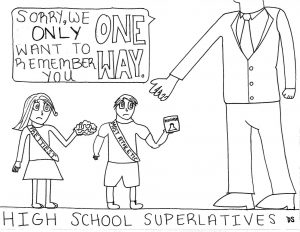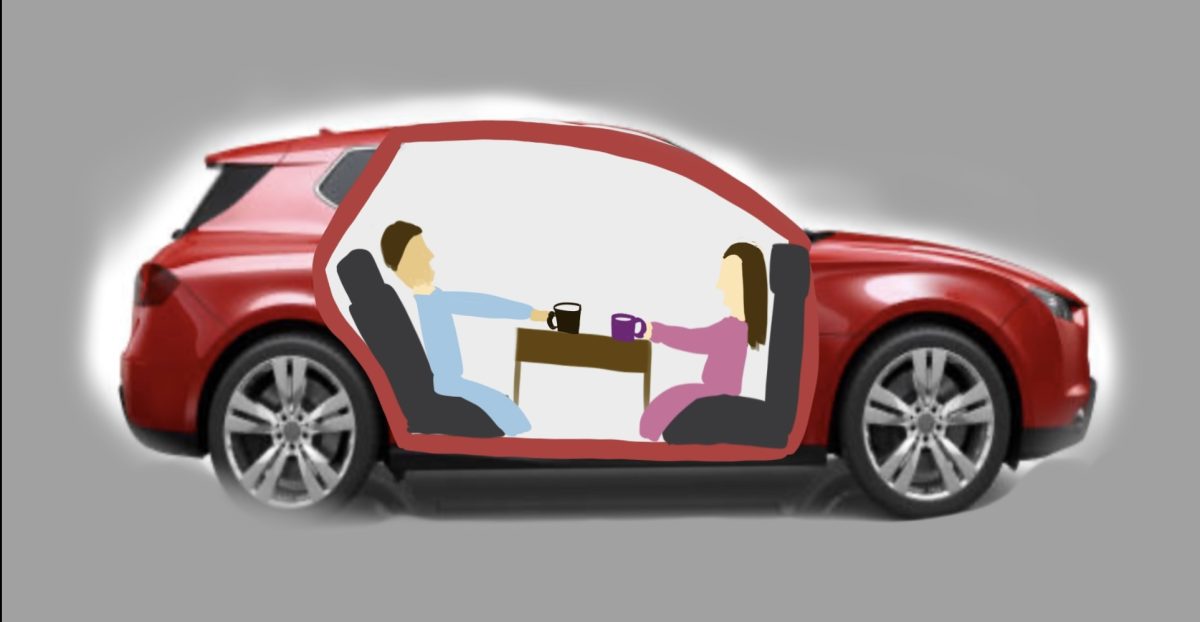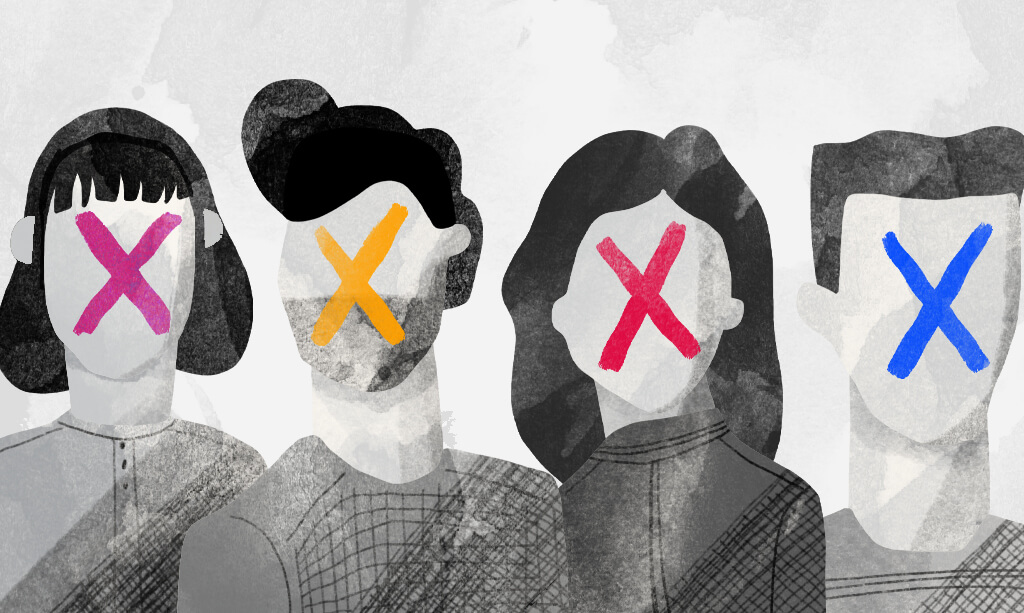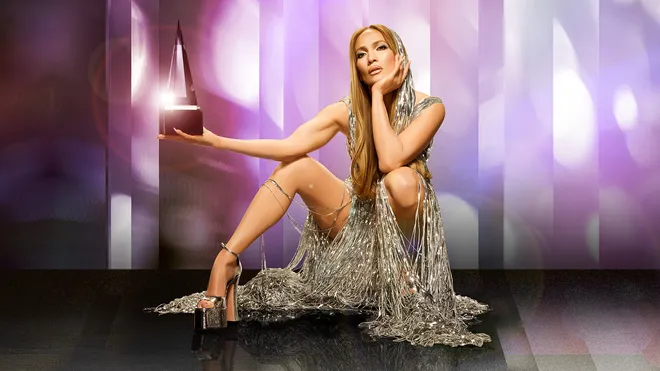 Teachers and parents have tried for so long to implant important ideas in our heads: don’t compare yourself to others, be yourself, be happy with who you are. Yet, just as teenagers start to feel comfortable in their own bodies and who they are, they exit high school being compared directly to all of their classmates in a variety of categories through a system involving votes from their peers: superlatives.
Teachers and parents have tried for so long to implant important ideas in our heads: don’t compare yourself to others, be yourself, be happy with who you are. Yet, just as teenagers start to feel comfortable in their own bodies and who they are, they exit high school being compared directly to all of their classmates in a variety of categories through a system involving votes from their peers: superlatives.
As parents and teachers alike reminisce about the hoopla surrounding their high school superlatives, many argue that superlatives are a time-old tradition that make senior year of high school all the more fun; however, superlatives have come to create competition in places where students should not be compared to one another. Best looking, best hair, best eyes—sure the winners may feel good, but these categories can also make other people feel insecure about their appearances. Additionally, categories about personal qualities such as most likely to succeed and funniest should not influence other students to believe that they don’t have these qualities.
Ultimately, students should be focusing on their own improvement and achievements. Instead, some categories focus on what students feel are their flaws. For example, students vote on who has the worst case of “senioritis” or who is most likely to be late to graduation—not great things to brag about.
However, superlatives can be a fun way to end out four years of high school and allow students to reflect on their time in high school. Many students are in no way affected by winning or losing a superlative category and enjoy the fun labels. Superlatives were originally meant to help students look at all of their classmates to see what they will remember the most about each one of them, which is a great and fun way to bring together the senior class. Yet, students must not let one category define who they are, as their one winning category is not their only identifier, and remember to not take superlatives too seriously: after all, they are supposed to be fun.
“To some extent it was nice because it is a small compliment from my peers,” said senior Tess Lancaster, winner of best eyes. “I think superlatives are fun to fill out and do as a grade, but I do not think they hold any actual value to anyone.”
Also, just because someone does not win best hair or most likely to succeed, it does not mean that they have unruly hair or a low intelligence level. “Usually we get many different names for each category. The votes are close and many students are deserving,” said Julie Hinton, a member of Yearbook Club. The voting system is not always the most accurate representation of that category.
In addition, the voting system for superlatives may benefit from a round of nominations before the actual voting occurs. In this way, students who deserve the superlative have a better shot at winning, as the win will not necessarily go to whomever has enough friends to get the most votes.
Many see superlatives as only one thing: a form of unhealthy and unjustified competition. Walpole High has already taken the initiative to eliminate competition between students and has done away with class rank, a system that directly compares students side by side through grades. Shouldn’t superlatives, a system that compares students based on all characteristics of their identity, be next? What makes superlatives any different?














